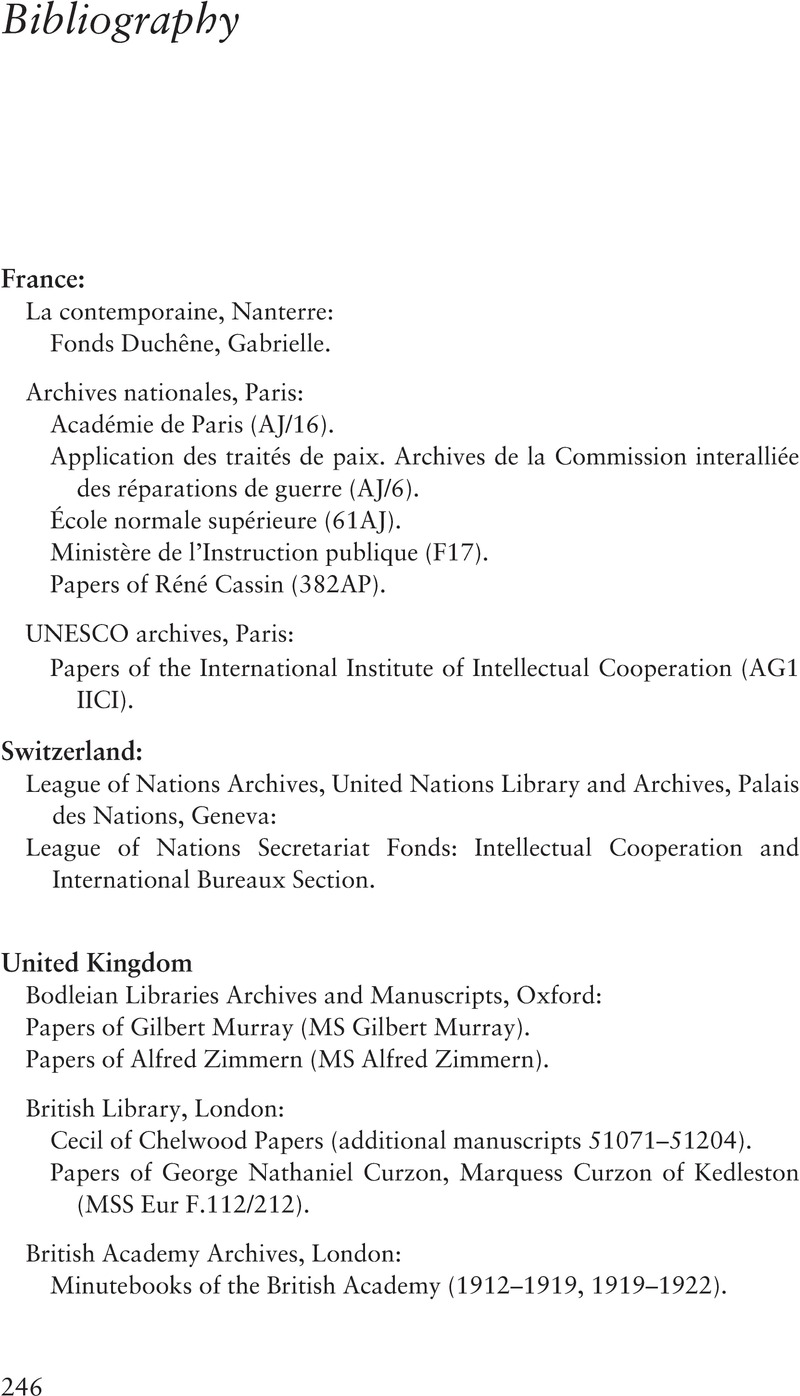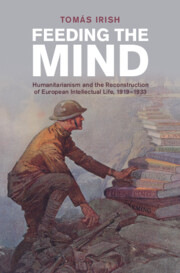Book contents
- Feeding the Mind
- Studies in the Social and Cultural History of Modern Warfare
- Feeding the Mind
- Copyright page
- Contents
- Figures
- Acknowledgements
- Abbreviations
- Note on the Text
- Introduction
- 1 1919
- 2 Feeding Bodies
- 3 Feeding the Mind
- 4 Knowledge Displaced
- 5 Books and Buildings
- 6 Who Were the Intellectuals?
- Epilogue: Beyond 1933
- Bibliography
- Index
- References
Bibliography
Published online by Cambridge University Press: 07 October 2023
- Feeding the Mind
- Studies in the Social and Cultural History of Modern Warfare
- Feeding the Mind
- Copyright page
- Contents
- Figures
- Acknowledgements
- Abbreviations
- Note on the Text
- Introduction
- 1 1919
- 2 Feeding Bodies
- 3 Feeding the Mind
- 4 Knowledge Displaced
- 5 Books and Buildings
- 6 Who Were the Intellectuals?
- Epilogue: Beyond 1933
- Bibliography
- Index
- References
Summary

- Type
- Chapter
- Information
- Feeding the MindHumanitarianism and the Reconstruction of European Intellectual Life, 1919–1933, pp. 246 - 274Publisher: Cambridge University PressPrint publication year: 2023

